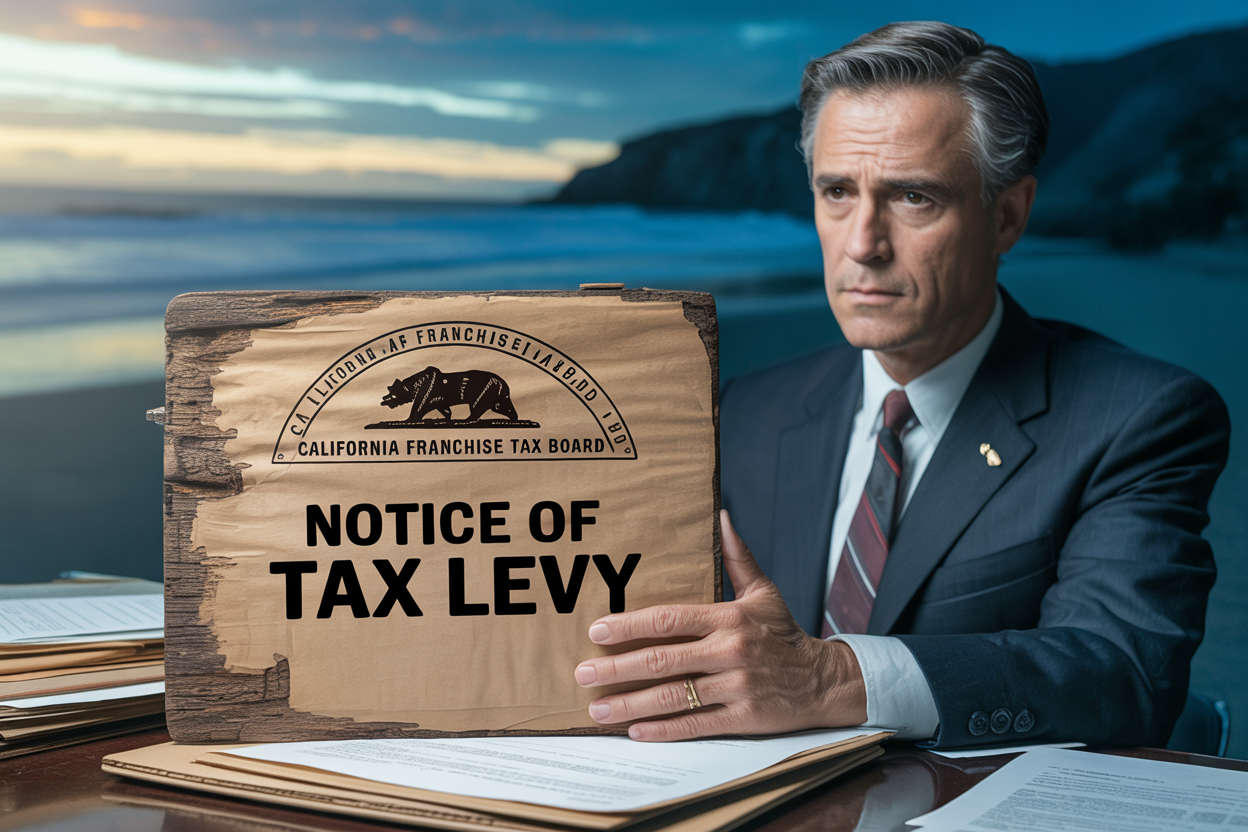How to Stop a Tax Levy from Multiple Agencies in California

How to Stop a Tax Levy from Multiple Agencies in California
If you owe taxes to more than one government agency, your financial life can unravel quickly.
In California, it's common for taxpayers to be targeted by:
- The
IRS (federal tax debt)
- The
Franchise Tax Board (FTB) (California income or business tax)
- The
Employment Development Department (EDD) (payroll tax issues)
Each agency has the power to levy your bank account, garnish wages, and place liens on your property — and they don’t coordinate with one another.
So yes, it’s possible to have your paycheck garnished by the IRS and your bank account frozen by the FTB at the same time.
But there’s good news:
You can stop it — if you know who’s coming after you, and act fast.
This guide explains:
- How to identify which agencies are involved
- How tax levies work for each agency
- The fastest way to stop multiple levies
- What financial disclosure you’ll need
- How a CPA coordinates resolutions for you
Signs You're Being Targeted by More Than One Agency
- IRS
Notice of Intent to Levy (Letter 1058 or LT11)
- FTB
Order to Withhold from your bank
- EDD
Earnings Withholding Order for wage garnishment
- Multiple notices showing different balances and return years
- Letters from both state and federal agencies
If you're unsure, check:
- The top left corner of each letter (IRS, FTB, or EDD logo)
- The notice number or code (e.g., CP504, FTB 4930, EDD DE 231L)
- Your IRS and FTB online accounts (if registered)
How Tax Levies Work in California
| Agency | What They Can Levy | How Fast It Happens |
|---|---|---|
| IRS | Bank accounts, wages, vendors | ~30–60 days after final notice |
| FTB | Bank accounts, wages | Often 10–30 days after demand |
| EDD | Wages, bank accounts, property | Within days of issuing notice |
The IRS gives you more notice. The FTB and EDD can levy almost immediately, especially if you’ve ignored earlier letters.
How to Stop a Multi-Agency Tax Levy (Step-by-Step)
1. Identify All Active Debts
Get a clear list of:
- IRS balances by year (use IRS transcripts or Form 8821)
- FTB balances and entity status
- EDD liabilities and any prior DE-9 returns filed
2. Call Each Agency and Request a Hold
IRS: Ask for a collection hold while submitting an Offer in Compromise or payment plan
FTB: Request a
hardship or installment agreement hold
EDD: Ask for
levy release or appeal pending status
3. Prepare a Unified Financial Package
- Income & expense worksheet
- Assets & liabilities
- Bank statements
- Copies of all tax notices and prior returns
Your goal is to present a clear picture of your inability to pay — and coordinate the same information across all agencies.
4. File Offers in Compromise or Payment Plans
Depending on your situation:
- Submit
IRS Form 433-A/OIC + Form 656
- Submit
FTB financial statement and OIC form
- Submit
EDD hardship documentation or offer
Why You Shouldn't Go It Alone
Every agency has different rules. If you make inconsistent statements or submit partial documents, it can backfire.
At Boulanger CPA, we:
- Stop IRS, FTB, and EDD levies in 1–2 business days
- File complete Offers in Compromise or Installment Agreements
- Coordinate multi-agency settlements that hold up under scrutiny
- Prevent double-garnishment and repeated levies
📞 Call 657-218-5700 or Schedule a Consultation
Frequently Asked Questions
Can I be levied by the IRS and FTB at the same time?
Yes. These agencies operate independently and can issue simultaneous levies on your income or accounts.
How do I know which agency levied my account?
Check the notice code and agency name. IRS notices typically start with “CP” or “LT.” FTB and EDD will show state logos and unique codes.
How quickly can I stop a tax levy?
You can often stop it within 24–72 hours by calling the agency, submitting required documents, and requesting a levy release.
Will submitting an Offer in Compromise stop all levies?
Submitting an OIC to one agency will not stop another agency’s actions. You must address each one separately.
Can a CPA stop multiple levies at once?
Yes. A California-based CPA can contact all agencies, negotiate holds, and file coordinated resolutions to stop overlapping levies.
📣 About the Author
Marc Boulanger, CPA is the founder of Boulanger CPA and Consulting PC, a boutique tax resolution firm based in Orange County, California and trusted by high-income individuals and business owners across Southern California.
He is the author of Defend What’s Yours: A California Taxpayer’s Guide to Beating the IRS and FTB at Their Own Game, available now on Amazon. The book offers a step-by-step plan for resolving IRS and FTB tax debt without losing your business, your home, or your peace of mind.
With over a decade of experience resolving high-stakes IRS and State tax matters, Marc brings strategic insight to complex cases involving wage garnishments, bank levies, unfiled returns, and six-figure tax debts. He is known for helping clients reduce or eliminate tax liabilities through expertly negotiated settlements and compliance plans.
Marc is a Certified Public Accountant licensed in California and Oklahoma and holds the designation of Certified Tax Representation Consultant. He is a member of the American Society of Tax Problem Solvers (ASTPS) — the national organization founded by the educators and practitioners who have trained thousands of CPAs, EAs, and tax attorneys in IRS representation strategy.
Every case is handled with discretion, proven methodology, and direct CPA-led representation — not call center scripts.
📍 Learn more at www.orangecounty.cpa or call (657) 218-5700.










